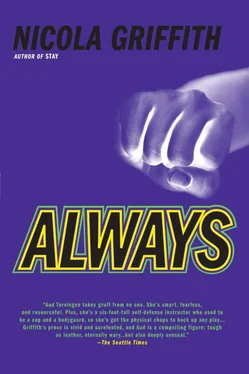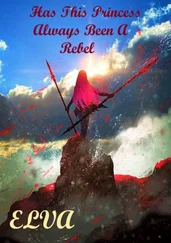I stood and pulled my shirt off.
“The fuck… ?” Suze said.
I pointed to a silvery line about three inches long on my left side, just above my hip.
“This thin scar here, that was a knife. At the time it felt as though someone had drawn a pen along my ribs. I barely noticed. Adrenaline does that.” I walked slowly around the circle of women. Look. See. Know. This is what it’s like to have your skin opened like the thin skin of a peach and watch the juice run out. “It bled a fair amount, but I didn’t even need to go to the emergency room, I just bound it up.”
“It didn’t hurt at all?” Tonya looked as though she wanted to put her fingers on it, in it. Doubting Tonya.
“It hurt the next day, a kind of deep ache, a bit like the worst time I sliced my finger when cutting up carrots.”
I showed them that scar on the tip of my left index finger. There was a scar on my thumb, too, but I couldn’t remember what that was from.
“Cutting carrots?” Katherine said, with a look that said, Are you fooling with me?
“I took naproxen and that helped.”
“Like for period pains.”
“Yes. Pain is pain, whether it’s ‘natural’ or not.”
They chewed on that.
“Were you afraid?” Jennifer said.
“No. It happened too fast. It often does.”
“Was he trying to kill you?”
“No.”
“What did he want?”
“He, they, wanted to escape. I was in their way. It wasn’t personal.”
“Not personal!”
“No, I don’t think so. He wasn’t expecting me there in the first place. He didn’t care whether I hurt or not, whether I died or not, he only cared about himself.”
I couldn’t tell what they were thinking.
“This”—I bent my left arm and put my fist on my shoulder to show the pink furrow running along the line between triceps and biceps, then turned so they could see the entry wound by my left shoulder blade—“this was a rifle bullet, fired from a scoped weapon. I couldn’t tell you if that was personal or not. It was for money. He was an expert, who was lying prone and ready in the snow. Snow. I was a dark target against a white background. As you see, it missed all my vital organs. I was hit here on the shoulder and the bullet traveled just under my skin, down my arm, and out near the elbow. I lost blood but was able to drive myself back to safety eventually. I’m told that the scar can be repaired nicely. This—”
“Wait. How did that feel?”
“At the time, it felt as though someone had punched me in the back.” And then I had been worrying about not getting shot again, about hypothermia, and bleeding too much, and, overwhelmingly, worrying for Julia.
Therese said something.
“I’m sorry?”
“After that? After the punch in the back?”
“It hurt. But pain is just a message. Just a note to let you know that something is wrong. You can ignore the message.”
“You can’t ignore a hole in your back.”
“You can. You can ignore anything if your life depends upon it. Pain is just a message. Of course, I did take some morphine.”
“Morphine.”
“Yes. And later I went to hospital.”
“Did the police catch him, the guy?”
“They found him.”
“Did he go to jail?”
“No. He didn’t make it that far.”
Most of them didn’t get it, but Sandra was looking at me, face very still, eyes like a photograph of an eclipse: pupil a black hole, iris blazing, almost writhing, like a corona. I didn’t understand her message. “That one,” she said, pointing to my neck, “that looks personal.”
“An addict. An adolescent with a straight razor. I couldn’t tell at first if it was a boy or a girl. It turned out to be a boy.” I had seen his naked, skinny little chest when I had taken his sweater. I could have killed him. I nearly did. “As I say, an addict, or schizophrenic.” Funny, that had never occurred to me before.
“Were you scared?”
“I thought I was going to die, but I’m not sure I was scared.”
“What did you do?”
“He had the blade against my jugular. He’d probably seen how from television. For a little while, I gave up. I just started telling a story.” I had spent months trying not to think about that night, how I had known, really known, I would die, how sordid I found the situation, the understanding that this was it, right there, in the dark, in a park full of homeless people in a city where I knew nobody while wearing the clothes of a man I had just beaten half to death, and that there was nothing, nothing to be done.
“A story. Like a Dick and Jane type story?”
“No. I don’t remember, exactly. I just talked and talked, and then he wavered, because he was young and he needed his drugs, and his arm dropped, and I took the razor away from him.”
“Did you hurt him?” Suze said.
“No.” But there had been a moment when I considered cutting his throat, watching his blood gush out and down his chest. It would have been black in the faint city light among the trees. “No. I left.”
“Don’t tell me, no hospital, right?”
“Right. A plane, to North Carolina. Then healing. There was some… some blood loss.”
“No shit.”
“But not everyone’s like you,” Kim said. “We can’t let someone shoot us, stab us, slit our throats, and then go home and take an aspirin.”
“The human body is very strong, very difficult to kill, unless you’re facing an expert.” If I put a razor to someone’s throat, they’d die. “And they, I, you heal. Look.” I sat down and pulled up my left pants leg, past the two-inch white scar just below the back of my knee. “This happened when I was nine. Or eight, something like that. A nail sticking out of a piece of wood. I was running around in the garden, jumped over something, felt a little scratch, then—”
“Blood for days,” Nina said, nodding. “Cuts on the plump parts, near a joint, they just gush. ’Specially if you’ve been running. See this?” She flexed her right arm, showed a very similar scar just above her elbow. “Barbed-wire fence. And this”—she showed us four neat indentations across the tops of the fingers on her left hand—“a steel tape measure. We were running around on this construction site when I was a kid, three of us holding the tape, only I tripped over my own ankles and fell over and, zzzt, they ran on and the tape cut me open.”
“I have a burn scar,” Katherine said, and then they were all rolling up or unbuttoning or pushing down something and showing scars, and saying, “You’re right, it didn’t hardly hurt to start with,” or “It bled like crazy,” or “I had nineteen stitches! Hurt like a motherfucker the next day.”
Sandra talked about her crooked middle finger, how it got caught in her sweater sleeve when she was trying to take it off and running to catch the school bus when she was eleven, how she’d tripped and fallen and her finger was broken to pieces. She didn’t mention the burn on the back of that hand that looked much more recent. She didn’t point out the damaged thumbnail. Nobody asked her about those things, either, though Pauletta did say to Kim, “So, that scar on your chin. That’s from when you bashed your own teeth out on the pavement?”
“This? Nah. That was from going facefirst down a slide and forgetting to put my arms out.”
So then the conversation became about playground mishaps, and I was struck by the fact that none of them talked about being hit or strangled or knocked down with malice by the school bully; though Pauletta admitted to having been a bully when she was a kid. “That was my momma. She told me I needed to take care of my business, so I did. And then I started to take care of business that wasn’t mine, you know? You look at me crosswise and I slam you against the lockers. You don’t ask me to your party and I trip you up and kick you in the stomach and take your lunch money.” She saw the way Therese was looking at her and shrugged. “Hey, I was a kid. I don’t do that now. You never hit somebody?”
Читать дальше












